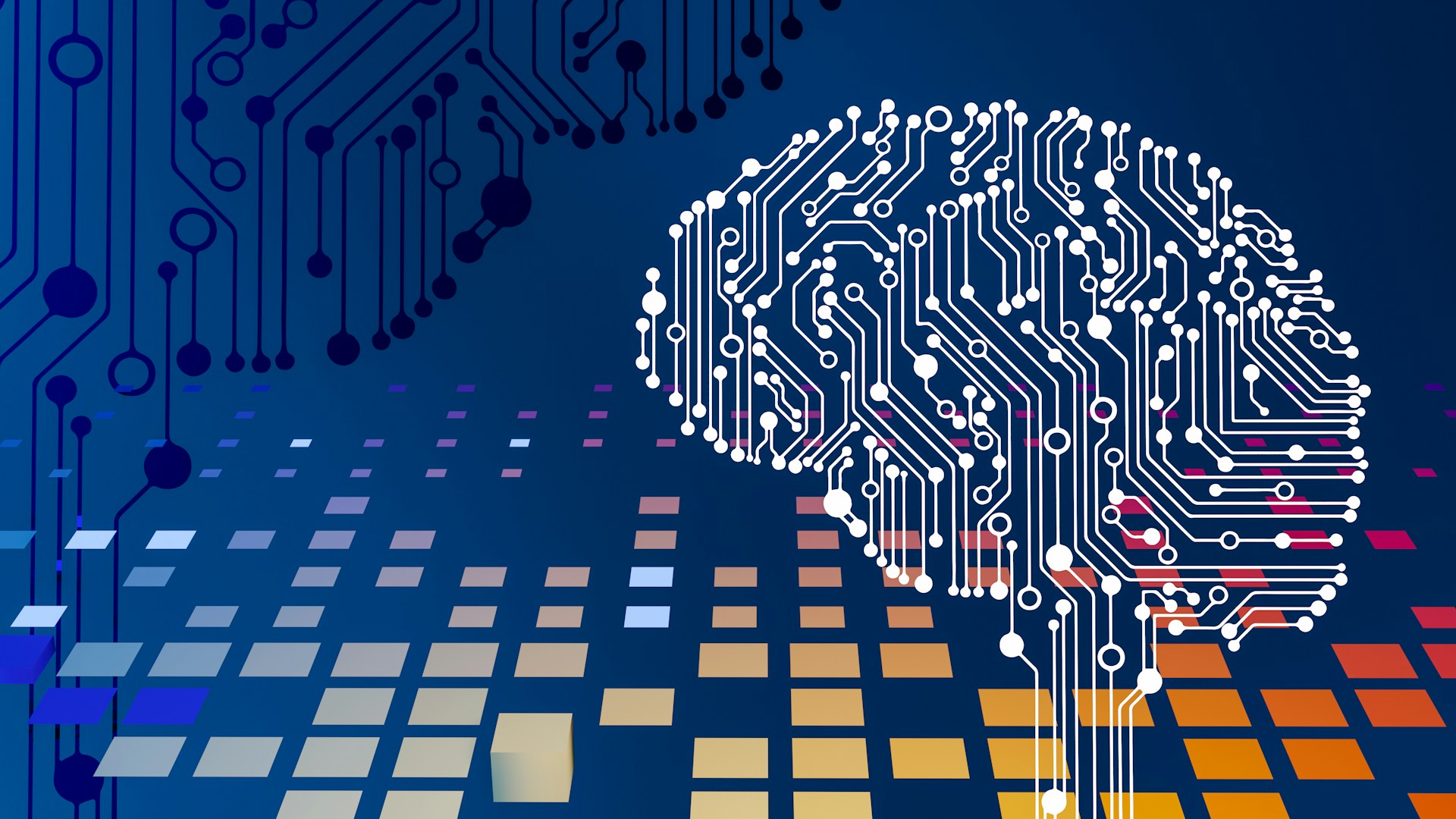What is the Impact of AI in Cybersecurity?
05 Mar, 20248 minutesArtificial intelligence (AI) is growing in prominence as an emerging technology in the IT se...

Artificial intelligence (AI) is growing in prominence as an emerging technology in the IT security space. By 2032, AI cybersecurity solutions are predicted to reach $102 billion. With this forecasted growth already noticeable within the industry, organizations yet to transition to AI must start considering adopting it to bolster their defenses against the rising level of cyber threats. But how many businesses truly understand the impact of AI in cybersecurity?
This guide will answer this question by delving into how AI and cybersecurity are used, including examples of the pairing and three core advantages. By the end of this guide, you’ll have comprehensive insight into the impact of AI in cybersecurity and how it can benefit your business.
In this guide, we’ll delve into the following:
How is AI used in cybersecurity?
With the growing frequency of cyber-attacks and emerging sophistication of threats, AI has quickly become a technology capable of significantly impacting cybersecurity. Despite being in its relatively early stages, AI in cybersecurity is gaining prominence on a global scale. While traditionally, IT security experts use manual analysis, rule-based systems, and signature-based detection to counter cyber threats, AI helps make traditional approaches to combatting threats more seamless.
For context surrounding traditional approaches to cybersecurity:
- Manual analysis requires humans to review and detect potential vulnerabilities, which can be time-consuming and sometimes result in human error.
- Rule-based systems are set to trigger alerts and behavior rules to identify issues but lack the ability to adapt to emerging threats.
- Signature-based detection involves comparing incoming traffic with a threat database. This approach is effective for combatting known threats but less so for addressing new ones, often leading to false positives.
As the level of cyber threats has evolved and continues to do so, traditional methods of combating issues are beginning to prove less effective and a drain on resources. However, by combining traditional approaches with AI and cybersecurity, talent in IT security can improve their organization's security posture.
One of the primary ways AI and cybersecurity go hand in hand is how it automates threat detection and response. AI algorithms can analyze vast datasets to identify behavioral patterns associated with cyber threats. They can analyze entire networks to detect vulnerabilities and help IT security specialists forecast and prevent threats.
AI cybersecurity solutions can automate traditional IT security methods, responding to real-time threats. Combined with Machine Learning (ML) algorithms, AI can help mitigate the risk associated with human error while freeing up the time of human resources to be used on more manual-intensive tasks.
We've mentioned how cyber threats continue to emerge, meaning talent within IT security must stay equipped with the necessary skills to combat attacks. However, as the industry experiences a skills gap and talent shortage, AI in cybersecurity may be a valuable solution to close these gaps. As AI and ML-based algorithms can be retrained with new data, they can adapt to emerging threats and evolve with future attacks.
Since we've covered the question 'How is AI used in cybersecurity?', let's explore some examples of AI in cybersecurity. Scroll to learn more.
Examples of AI in cybersecurity
We discussed the role of AI in our insight into the latest cybersecurity trends for 2024. In this section of our guide, we'll outline the key examples of how AI and IT security help empower businesses to detect and respond to threats in real-time. Here are examples of AI in cybersecurity, from identifying malware threats and safeguarding network security to detecting phishing attacks and supporting endpoint security.
- Identifying Malware Threats
Unlike traditional signature-based detection, AI cybersecurity solutions utilize algorithms to identify both known and unknown malware threats. These algorithms can review extensive datasets, leveraging static and dynamic analysis techniques to detect behavioral patterns and anomalies related to malware attacks. Whereas threats may slip through traditional defenses, AI in cybersecurity ultimately ensures new and more sophisticated malware variants are detected.
- Safeguarding Network Security
AI in cybersecurity can safeguard an organization's network security by detecting anomalies and analyzing archived traffic data. Here, AI will identify suspicious behavioral patterns within a network. AI algorithms will also analyze network devices to detect unauthorized devices and notify security teams of potential vulnerabilities and threats. Through continuous learning, AI solutions ensure network security measures stay ahead of emerging attack strategies.
- Detecting Phishing Attacks
By understanding and analyzing email content, AI algorithms can detect anomalies and behavioral patterns associated with phishing attacks - a prominent cyber threat. AI in cybersecurity can filter emails for suspicious activities, track user behavior, and flag potential vulnerabilities more effectively than traditional rule-based filtering methods.
- Supporting Endpoint Security
Cybersecurity and AI can also support endpoint security, arguably more seamlessly than traditional signature-based detection. AI will review endpoint behavior, from smartphones and laptops to other endpoint devices, to identify and mitigate potential attacks. AI algorithms can evolve with the latest threats and track activities within endpoints for suspicious activities, such as the sharing of malicious files, to provide greater protection for a company’s IT infrastructure.
Overall, AI in cybersecurity covers various areas, from detecting malware and phishing attacks to safeguarding network and endpoint security. It provides a scalable solution that evolves with the threat landscape, taking a proactive and more advanced approach to bolstering traditional methods of IT security.
AI in cybersecurity can bring significant benefits to your IT security operations. In the following section, we’ll highlight these advantages to give you a comprehensive view of how AI-based solutions can support you and your team.
How do the benefits of AI in cybersecurity support businesses
There are several advantages of adopting an approach to your IT security that combines AI and cybersecurity to support your permanent and contract hires in detecting and responding to various threats. From enhancing threat detection to identifying vulnerabilities with greater accuracy to streamlining your security processes, let’s explore the primary benefits of AI in cybersecurity.
AI in cybersecurity enhances threat detection
One of the core benefits of AI in cybersecurity is how it can enhance threat detection within your business. Although your IT security team is and should remain a crucial part of safeguarding your assets, AI can give them a boost, allowing your specialists to respond to cyber-attacks in real-time and minimize any potential damages.
AI and ML algorithms can process vast amounts of data from various sources much faster than humans. As a result, AI cybersecurity solutions can detect potential issues and suspicious behavior in immediate real-time before they cause severe harm, such as data breaches or threats to an organization’s finances and reputation. This enhancement in threat detection allows companies to remain at the forefront of the evolving world of IT security.
Combining AI and cybersecurity can also enhance threat detection by filtering out false positives. AI-based solutions are embedded with the knowledge to recognize legitimate threat patterns, segregating genuine vulnerabilities from non-issues. False positives can occur when businesses rely solely on time-consuming manual work, which can waste time, money, and resources. Therefore, the ability of AI cybersecurity solutions to filter out false positives is significantly valuable.
As the world of IT security constantly evolves, staying updated with the latest threat detection strategies is essential. While overcoming the cybersecurity skills gap and equipping your people with the tools needed to counter emerging threats is necessary, AI in cybersecurity can enhance threat detection by helping to close this gap. AI and ML systems are capable of learning from archived data to adapt and respond to the latest threats far quicker than manual work alone.
AI cybersecurity can detect threats with greater accuracy
Another of the benefits of AI in cybersecurity involves its ability to detect various cyberattacks with greater precision and accuracy. Part of this accuracy lies in AI's ability to implement predictive analysis into potential threats by analyzing large datasets to map out recurring patterns of suspicious behavior within the IT infrastructure. By using multiple variables, AI cybersecurity solutions can establish predictive models to help cybersecurity specialists forecast threats more accurately.
Cybersecurity and AI can also help businesses accurately detect and avoid zero-day vulnerabilities. Zero-day refers to security weaknesses within a company's IT infrastructure that are unknown to the organization and third-party vendors.
As no patches or processes would be in place to identify and protect against these unknown exploitations, these vulnerabilities can cause serious harm to a business. Unlike traditional approaches, like signature-based antivirus software, which are less effective at accurately detecting current and new threat variants, AI in cybersecurity can predict and identify zero-day threats, offering you an additional layer of accurate protection against more elusive threats.
AI in cybersecurity extends its accuracy to detecting threats across network traffic, filtering through extensive volumes of data to identify unusual traffic patterns, flagging potentially malicious IP addresses, and alerting any attempts to gain unauthorized access to a network.
With the impact of human error and false positives potentially detrimental to your business, the support of AI in cybersecurity can reduce these mistakes while helping you delegate time and resources to threats you know with accuracy need addressing.
AI and cybersecurity can streamline IT security processes
Our final entry in our list of the benefits of cybersecurity in AI involves its ability to streamline your IT security processes. As AI can automate everyday tasks such as threat detection, this can free up your IT security analysts and professionals within your cybersecurity team's time. Rather than dedicating manual resources to time-consuming tasks, your talent can focus on projects requiring more complex requirements like incident response.
Your cybersecurity specialists are often tasked with sometimes sifting through overwhelming amounts of data, which can lead to burnout and human error. AI and cybersecurity can work in tandem to filter through large volumes of alerts, reports, logs, and other datasets to minimize the burden on your talent. When doing so, AI will alert your staff to potential vulnerabilities requiring attention. As mentioned, it can also do this far quicker than a human can, reporting on issues in real time.
Relieving your IT security experts of these time-consuming tasks can streamline internal processes, allowing you to allocate resources, manage workflows, and prioritize assignments more efficiently and effectively.
Although AI cybersecurity solutions can streamline your internal processes, we must clarify that they shouldn't replace your talent entirely. AI is still in its relative infancy and requires assistance from a human expert. When reading this section on how AI can streamline your IT security, consider it as another valuable tool to help your cybersecurity team work more efficiently and combat more cyber threats than they could through manual work alone.
Adopting AI in cybersecurity is an adjustment, but a necessary one you should consider making to futureproof your organization from emerging threats. To ensure your talent is ready for transition to AI, you may need to consider upskilling. Learn more about this by reading our guide on How to Upskill Employees in Your Cybersecurity Team.
The final word on the impact of AI in cybersecurity
Overall, the impact of AI in cybersecurity is transformative and indispensable in the face of evolving cyber threats. As outlined in this guide, AI can revolutionize traditional approaches by automating threat detection and response, addressing the limitations of manual analysis, rule-based systems, and signature-based detection.
The core benefits of incorporating AI in cybersecurity include how it enhances threat detection by processing vast datasets in real-time, allowing for faster response to potential issues and minimizing damages due to an attack. Its ability to filter out false positives streamlines the identification of genuine vulnerabilities, saving time and resources.
Additionally, the accuracy of AI in detecting various cyber threats, including zero-day vulnerabilities, adds an extra layer of protection to businesses. Furthermore, by automating routine tasks, AI streamlines IT security processes, empowering organizations to delegate resources more efficiently and allowing cybersecurity specialists to focus on more complex challenges.
While AI offers unprecedented advantages, viewing it as a way to support human expertise rather than replace it is essential. The collaboration between AI and human talent is pivotal in navigating the evolving cybersecurity space. As you contemplate the adoption of AI in cybersecurity, you should see it as a strategic imperative to futureproof your organizational security.
If you’re looking for support in sourcing IT security talent with the transferable skills to adapt to AI, read our guide on How IT Recruitment Agencies Can Benefit Your Business.
Specialists in cybersecurity recruitment
Now that you understand AI's impact in cybersecurity, you may be considering adopting AI to strengthen your IT security posture. If so, you’ll need the talent with the niche skill sets to help you adjust to these emerging technologies, which is something we can support you with. Our team of specialist IT recruiters is well-versed in connecting the market’s best professionals to grow your cybersecurity team.
Contact us today to discuss your cybersecurity recruitment needs and learn what it means to partner with us.






